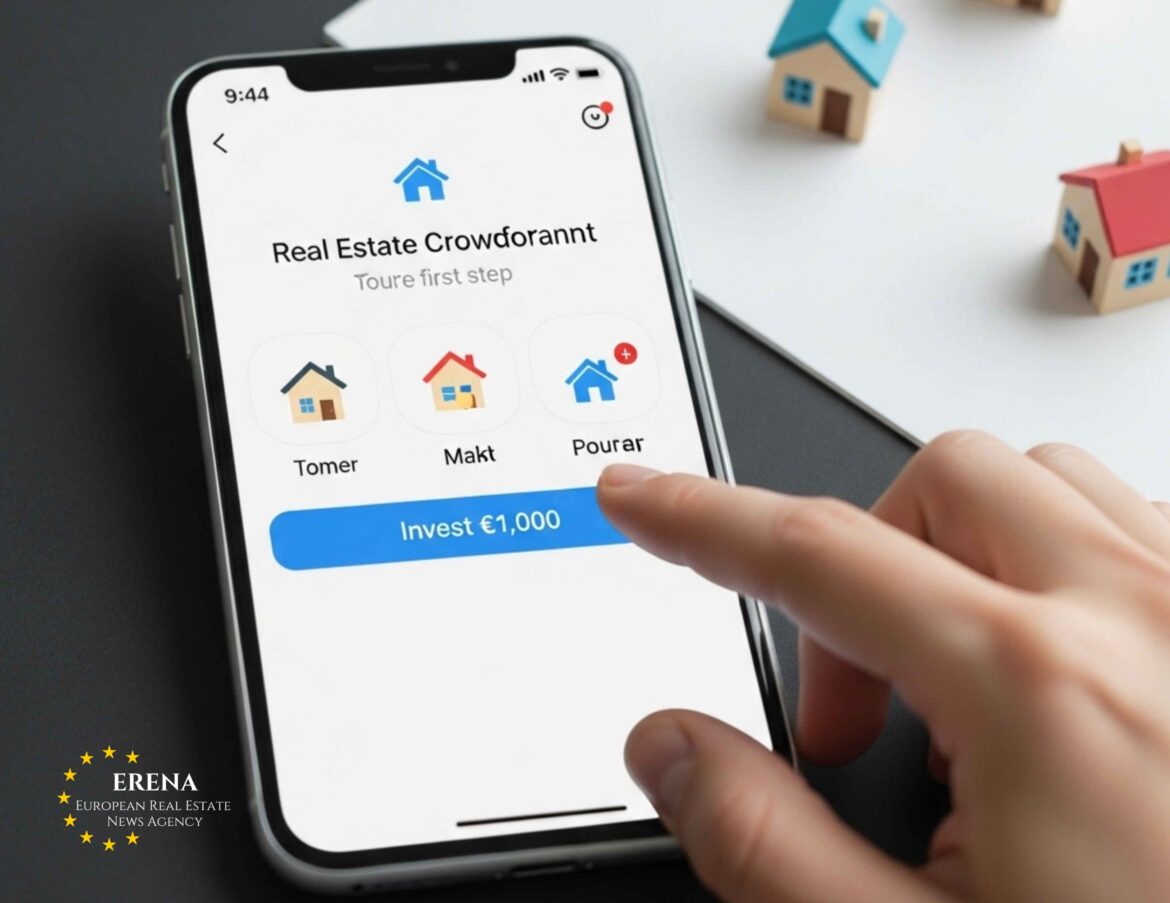Real estate has long been seen as a domain for the wealthy—buying an apartment, a house, or a commercial property requires significant capital, market knowledge, and ongoing management. But with the rise of digital platforms and crowdfunding models, a new opportunity has emerged: real estate crowdfunding. The best part? You can get started with as little as €1,000, right from your laptop. In this guide, you’ll learn how real estate crowdfunding works, what risks and rewards are involved, and how beginners can start investing.
What Is Real Estate Crowdfunding?
Real estate crowdfunding is a form of collective investing where multiple individuals pool their money to finance real estate development, acquisitions, or renovation projects. This model allows access to real estate investment without owning a whole property outright.
Crowdfunding platforms act as intermediaries between investors and developers. Once the funding goal is reached, the platform oversees the project and distributes profits to investors based on their share of the investment.
How It Works: Step-by-Step
- Sign Up on a Platform
Start by registering with a crowdfunding platform such as EstateGuru, Reinvest24, Brickstarter, Housers, or CrowdEstate. - Browse Available Projects
These platforms list a variety of investment opportunities—from residential buildings in Spain to commercial centers in Germany. Each project includes detailed information: purpose, estimated return, investment duration, risk level, collateral, and documentation. - Make Your Investment
Once you choose a project, you can invest an amount starting from €50 to €1,000 or more. Some platforms offer automated investment strategies based on your preferences. - Receive Returns
Depending on the project, you may earn regular interest payments or a share of the profits generated through rental income or property sale. - Exit the Project
At the end of the investment term, you receive your initial capital back along with any accrued profit.
Why It’s Attractive for Beginners
1. Low Entry Threshold
Unlike traditional property purchases, which can require tens of thousands of euros, you can start with just €1,000—making it accessible to students, freelancers, or young professionals.
2. Risk Diversification
You can spread your €1,000 across multiple projects in different countries and sectors, reducing the chance of major loss from a single project.
3. Passive Income
Platforms handle the legal paperwork, property management, and tenant issues. You simply monitor your investments and collect returns.
4. Transparency and Information
Reputable platforms provide regular updates, financial documents, and details about the developers behind each project.
5. Flexible Terms
Investment durations vary from 6 months to 5 years, and income types range from fixed interest to profit-sharing models.
Risks to Consider
1. Capital Loss
Even with thorough vetting, developers can fail or projects may underperform, potentially leading to partial or total loss of your investment.
2. Low Liquidity
Your money is locked in for the duration of the project. Early withdrawal is usually not possible or comes with penalties.
3. Regulatory Uncertainty
Crowdfunding regulations vary by country. Some jurisdictions have better investor protections than others.
4. Platform Dependency
If the platform managing your investments fails or experiences financial issues, it can affect your returns across all your active investments.
How to Choose a Reliable Platform
- Licensing and Regulation
Ensure the platform is licensed by relevant European financial authorities (e.g., Estonia, Spain, Lithuania). - Track Record and Reputation
Check how long the platform has been operating, the volume of funds raised, and reviews from other investors. - Security Features
Look for platforms offering collateral (e.g., mortgages), insurance, or reserve funds to protect your capital. - Transparency
Full access to legal and financial documentation is essential, including developer details and contract terms.
What to Look for in a Project
- Location
Properties in economically stable areas (e.g., Barcelona, Lisbon, Warsaw) tend to carry lower risks. - Property Type
Residential projects are generally lower-risk but offer moderate returns. Commercial and development projects may offer higher yields with greater risk. - Expected Return and Term
Average annual returns range between 8% and 12%, depending on the nature of the project. - Exit Conditions
Some platforms offer a secondary market for early exits, though this depends on demand and comes with fees or discounts.
Example Investments You Can Make with €1,000
EstateGuru (Estonia)
- Project: Secured loan for residential construction in Riga
- Duration: 12 months
- Return: 10.5% annually
- Minimum investment: €50
Reinvest24 (Spain)
- Project: Commercial property with tenant
- Return: 7% annually plus potential capital appreciation
- Minimum investment: €100
Brickstarter (Spain)
- Project: Short-term rental apartment in Valencia
- Income: Monthly rental returns plus value growth
- Return: Up to 11–12% annually
Taxes: What You Should Know
Income from real estate crowdfunding is generally subject to capital gains or investment income tax, depending on your country of residence.
- EU-based platforms are typically required to issue tax statements.
- It’s important to track all investments and store documentation.
- Consult a tax advisor to understand reporting obligations in your jurisdiction.
Tips for First-Time Investors
- Start Small – Test the platform with the minimum amount before committing larger funds.
- Read the Fine Print – Always review contracts and project documentation carefully.
- Monitor Your Returns – Follow the platform’s updates and track payment schedules.
- Use Auto-Invest (if available) – Let the platform diversify your investments based on your risk appetite.
- Invest Only What You Can Afford to Lose – As with any investment, there is always a risk of loss.
Conclusion
Real estate crowdfunding is a modern, accessible way to participate in property investment. With just €1,000, you can start building a diversified portfolio, earn passive income, and explore global real estate markets—without owning a whole property or dealing with tenants.
While the risks are real, proper research, diversified strategy, and the right platform can make crowdfunding a valuable addition to your investment toolbox, especially for beginners aiming to grow their wealth steadily.

